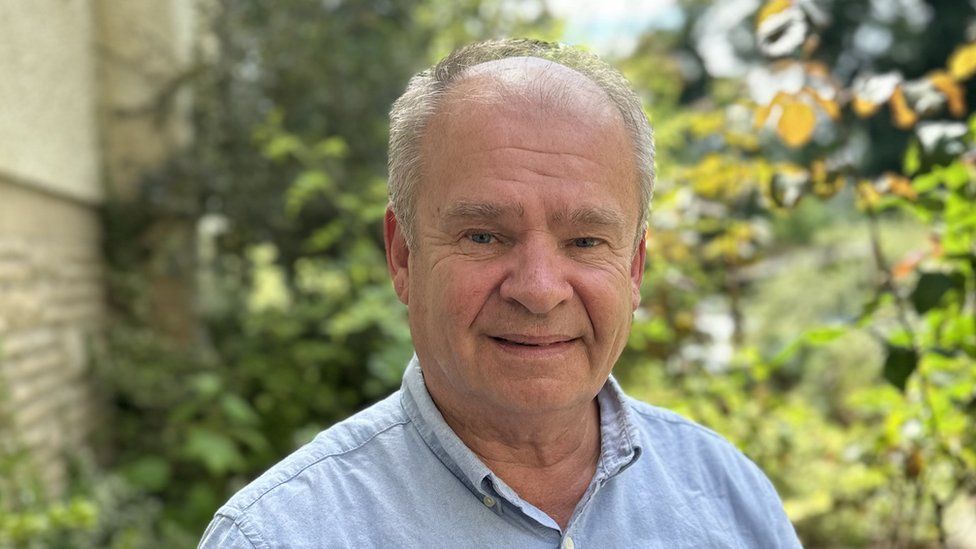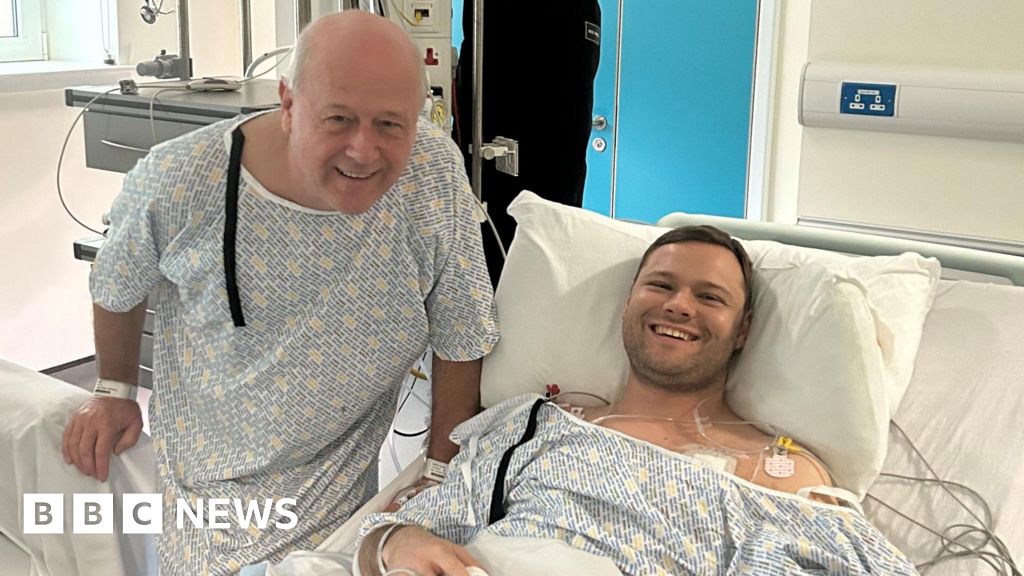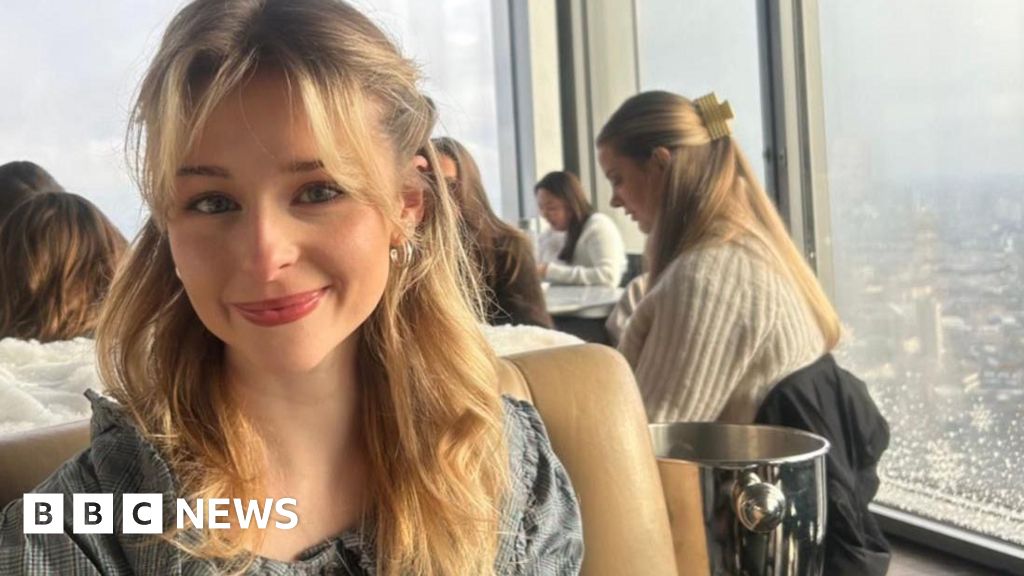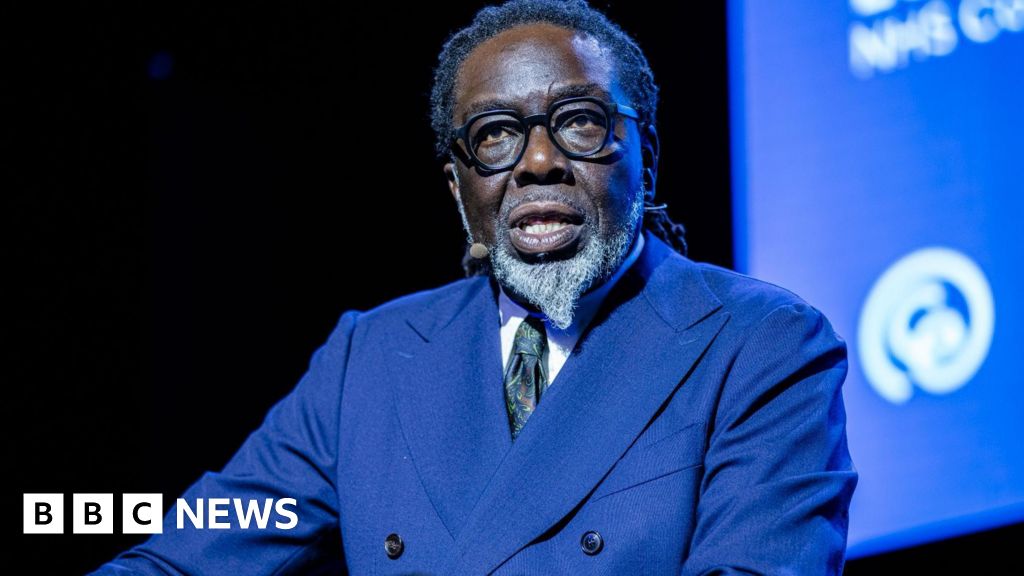ARTICLE AD BOX

Andrew says residential rehabilitation changed his life
By Chris Clements
Social affairs correspondent, BBC Scotland
Andrew is in recovery after a decade of alcoholism.
Ten years ago, he suffered a mental breakdown and his drinking spiralled.
It led to the loss of a career in finance and the breakdown of family relationships.
But the 62-year-old told BBC Scotland that his darkest point came last year.
"In June, my partner died and my drinking just got totally out of control," he said. "I couldn't function as a human being. I had to be cared for."
A GP referral led Andrew to Scotland's only NHS-funded rehab community, the Lothian and Edinburgh Abstinence Project (Leap).
After 15 weeks of intensive therapy, he completed the programme four months ago and said his physical and mental health vastly improved.
Andrew with "peer bridger" Phil Hayes
Andrew credits his reversal to peer support volunteers, who have experience of addiction themselves, who have helped him overcome his "cravings" and "obsession" with drink.
"It was the first time in many, many years that I was actually being honest about myself," he said.
"I could trust the volunteers implicitly. I got to understand that actually this isn't just me that has these problems.
"They gave me hope that actually I can recover and lead a fulfilling life."
'We want to offer people hope'
Andrew's experience of the value of peer support through recovery has helped inform a new programme designed to guide those addicted to alcohol or drugs through the "difficult journey" to rehab.
NHS Lothian has employed six "peer bridgers" - individuals with their own history of addiction - to help others between their referral to rehab and their eventual admission.
Dr David McCartney, project lead at Leap, said there were still "barriers to some individuals getting to rehab" including uneven referral rates and geography.
Dr David McCartney is project lead at the Lothian and Edinburgh Abstinence Project (Leap)
He told BBC Scotland that the peer bridgers will help those waiting for access.
"We get someone with lived experience who's been through rehab, who knows what it feels like to be at the coalface and to be struggling with addictions," he said.
"That person is employed by us to help the people who want to get to rehab or think they want to come to rehab to actually navigate that quite difficult journey through referral assessments, admission support during treatment and then after-care."
He added: "The first thing you want to do is offer people hope - that's where somebody with life experience can be hugely more powerful than employed staff or professionals.
"You have someone who's walked the walk, who greets you on your own terms, who has the same kind of language, who understands what it feels like to be where you are."
'Courage and motivation to change'
Phil Hayes is one of the new peer bridgers and draws on his own battle with drug addiction in the 1990s.
The 54-year-old said: "One of the important things is when somebody finds the courage and motivation to change their selves and change their addiction.
"As an organisation, we're able to connect with them and offer them consistent personal support all throughout that process."
He said that the project "helps fill the gaps" in support, adding: "I think in terms of addiction in society, I mean we need to be able to offer anybody suffering an addiction the complete wide range of options open to them, whether that's harm reduction or residential rehab and complete abstinence."
A study by Dr Nina MacKenzie found 61% of people who left Leap were substance-free after four years
One part of the Scottish government's "National Mission" to reduce drug deaths is improving access to residential rehabilitation.
It is committed to investing £100m for such referrals over the next five years.
Figures released by Public Health Scotland on Tuesday revealed that there were more than 1,300 state-funded placements between April 2021 and March 2023, costing more than £10m.
The average monthly number of placements being approved by alcohol and drug partnerships has increased over the last two years.
In April-June 2021, there were 140 funded placements under way. By the end of March, there were 233 placements running in Scotland.
'Access is important'
Dr Nina MacKenzie is psychiatry registrar and was commissioned by NHS Lothian and University of Edinburgh to study the outcomes of those leaving residential rehab at Leap.
She told BBC Scotland that - for those who completed the full programme - 61% remained abstinent from substances after four years.
Dr MacKenzie said the data was "adding to the evidence" on the long-term effects of residential rehabilitation.
"Our study shows that there is a possibility for improvement in a range of of outcomes for people who have gone through residential rehabilitation," she said.
"That is in comparison to other types of treatment for substance use disorder."
She added: "I think it's important that people have access to a range of treatment options.
"Residential rehabilitation will be right for some people and it's important that they can access that when they need it across all of Scotland."
If you have been affected by any of the issues raised in this story you can visit BBC Action Line.

 1 year ago
45
1 year ago
45








 English (US) ·
English (US) ·